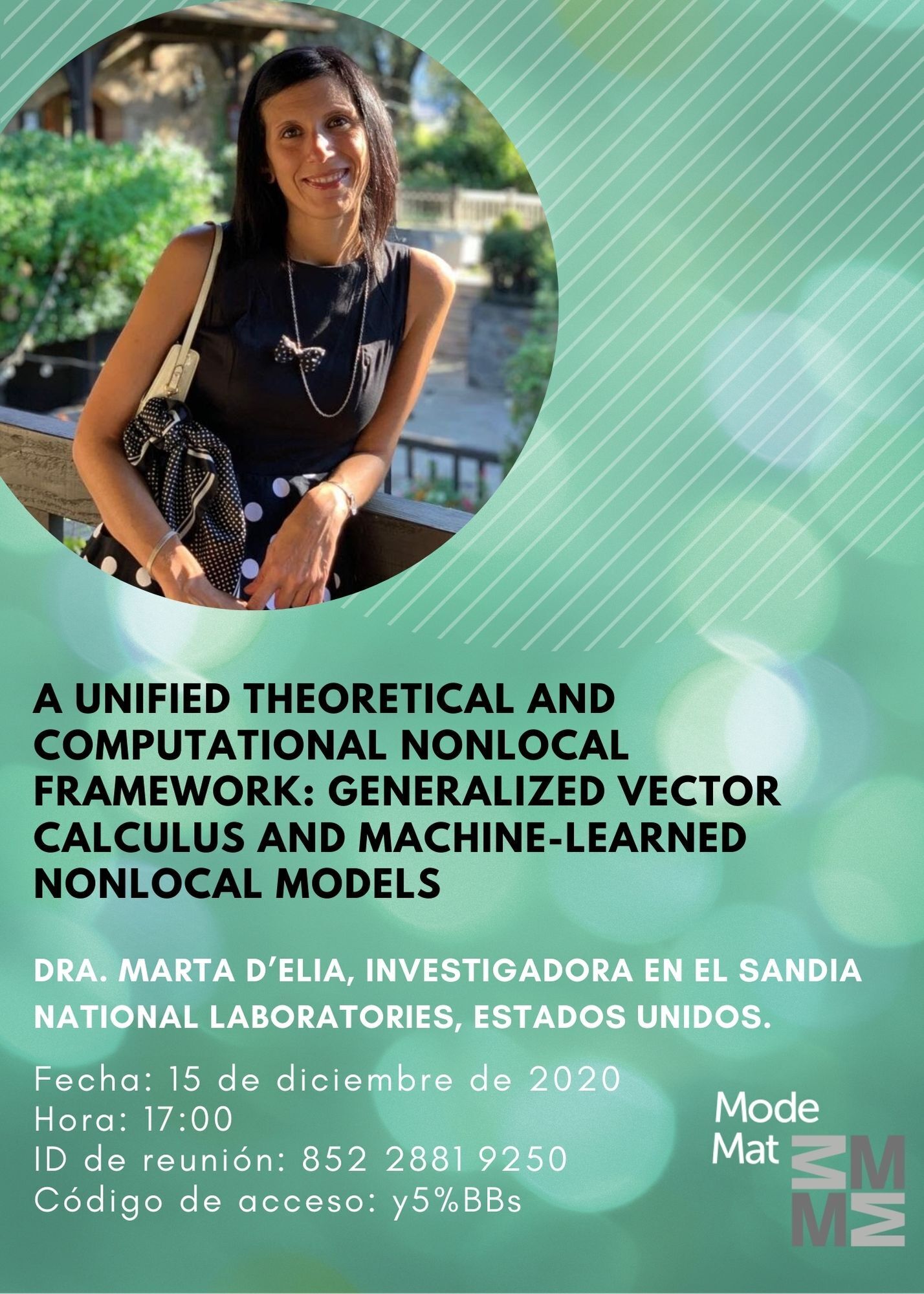
By Marta D Elia, investigadora en el Sandia National Laboratories, Estados Unidos
Fecha seminario: 2020-12-15
Nonlocal models provide an improved predictive capability thanks to their ability to capture effects that classical partial differential equations fail to capture. Among these effects we have multiscale behavior and anomalous behavior such as super- and sub-diffusion. These models have become incredibly popular for a broad range of applications, including mechanics, subsurface flow, turbulence, heat conduction and image processing. However, their improved accuracy comes at a price of many modeling and numerical challenges. In this talk I will first address the problem of connecting nonlocal and fractional calculus by developing a unified theoretical framework that enables the identification of a broad class of nonlocal models. Then, I will present recently developed machine-learning techniques for nonlocal and fractional model learning. These physics-informed, data-driven tools allow for the reconstruction of model parameters or nonlocal kernels. Several numerical tests in one and two dimensions illustrate our theoretical findings and the robustness and accuracy of our approaches